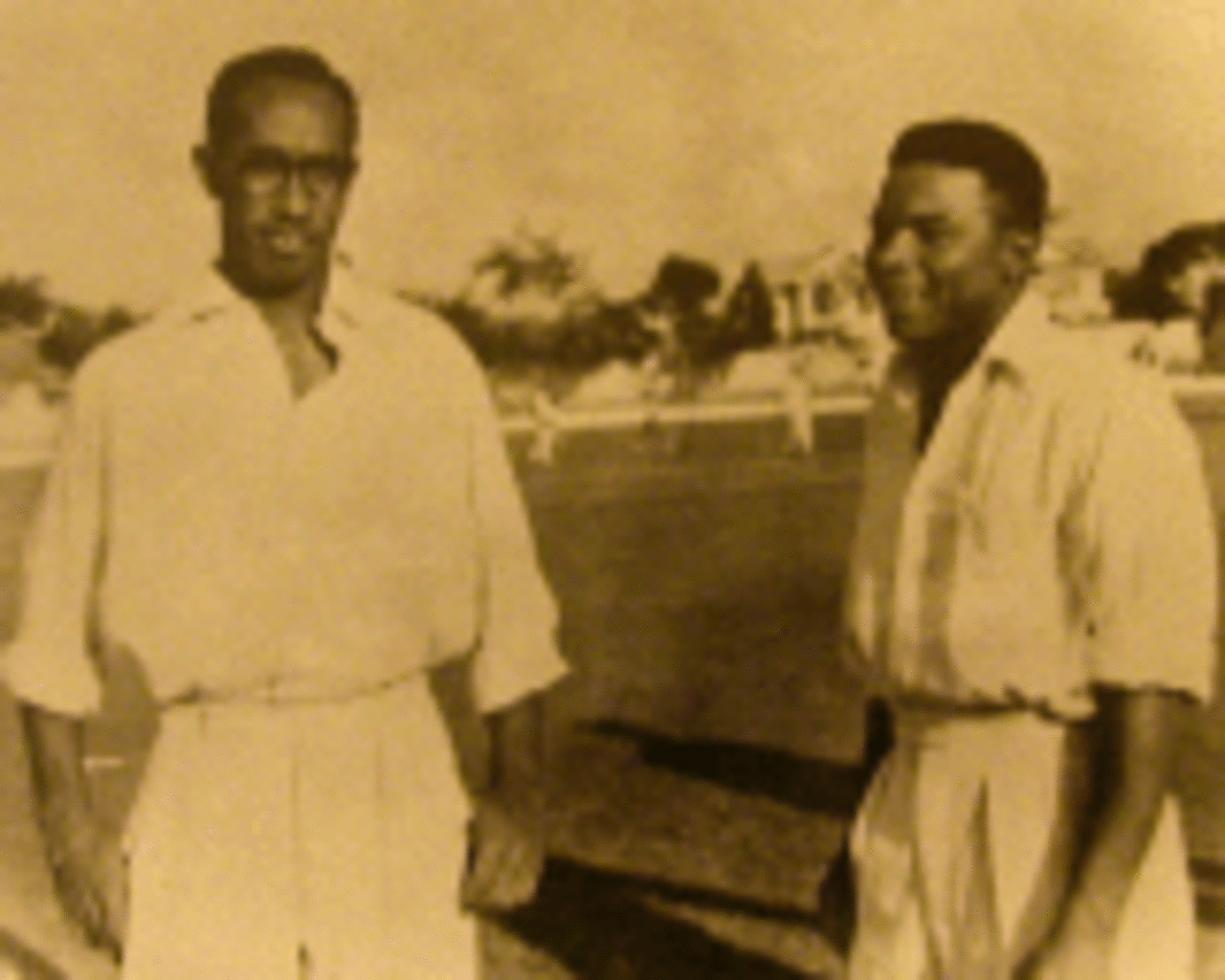The legacy of Boys' Town
Dileep Premachandran meets Locksley Comrie, a former player and president of the Boys' Town club, an institution that once boasted of West Indies players like Collie Smith and Sir Frank Worrell
Dileep_Premachandran
25-Feb-2013

Locksley Comrie
O'Neil Gordon Smith, Collie to those that knew and loved him, has been dead nearly 50 years yet you wouldn't know it if you listened to Locksley Comrie talk about him. Comrie moved to one of the poorest neighbourhoods in Jamaica when he was six years old, though back then Trenchtown wasn't the byword for gang violence that it has become today. He grew up idolising Collie, and like his idol, he was head boy at the school in Boys' Town. In later years, he headed Jamaica's football association, and was also president of his neighbourhood club, the same institution that once boasted of players like Collie and Sir Frank Worrell.
Comrie doesn't go back to the area as much as he'd like these days. When he does, it's often for the wrong reasons. "A lot of my old friends have been killed in the area," he tells you. "Earlier today, I was watching a football game on TV, and you could see a helicopter circling overhead. There's a fear of violence, and that violence is a fact of life in Trenchtown now. Growing up, it was never like that. Boys’ Town was one of the most successful institutions in the Caribbean, and dare I say it, the most unique in the world."
Father Hugh Sherlock, who founded the club, died in 1998, and part of the neighbourhood's soul went with him. For cricket aficionados, it's enough to know that Boys’ Town was Worrell's last club. After Collie's tragic death in a car crash in England in 1959, Worrell, a Barbados native who had moved to Jamaica, came to Boys’ Town to play as a way of honouring the memory of his departed colleague. Boys’ Town won the Cup for the first time in 1960, and Comrie says with a grin: "It was also because we started getting a fair deal from the umpires."
Comrie's own cricket career ended when he went to England to study in the early 1960s, but he put off his departure by a year just so that he could play alongside Worrell. "You just played beyond yourself," he tells you. "When he first promoted me from the senior side, I didn't really want it because I would have been captain of the junior team. And in the first five games, I didn't get to bat or bowl because we were so strong.

Locksley Comrie
It dismays Comrie that "Ninety per cent of Jamaicans no longer know about him". "The road named after him, Collie Smith Drive, is known for its shooting and fighting and death. It leads straight to a cemetery. What happens on that road has no connection whatsoever to the man he was."
The same Trenchtown that gave the world Collie Smith, Bob Marley, Peter Tosh and many others is now a no-go zone. "Bob Marley wrote five songs about Trenchtown," Comrie tells you with a smile. "He just put music to the way people talked there. When he sang: Then we would cook cornmeal porridge, Of which I'll share with you; My feet is my only carriage, So
I've got to push on through, he was talking about our lives.
"And there was Jimmy Tucker [the tenor]. Listening to him was like going to the Metropolitan opera. He was singing in languages he didn't even know. Even now, when I listen to him, I can close my eyes and picture Trenchtown as it was 50 years ago."
It was a different world then.
Dileep Premachandran is an associate editor at ESPNcricinfo